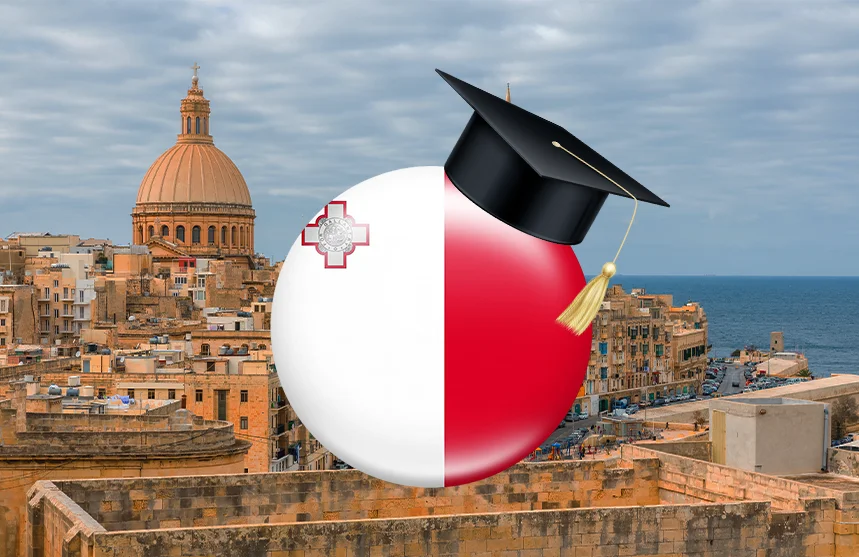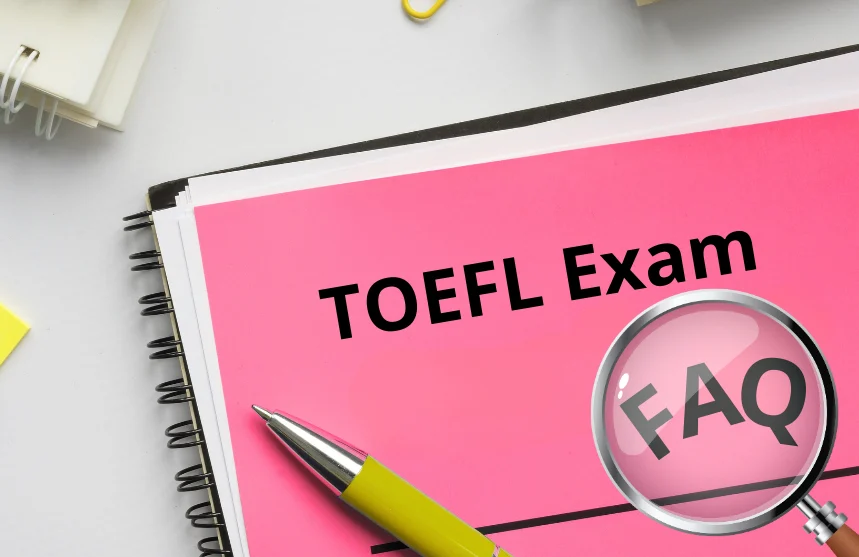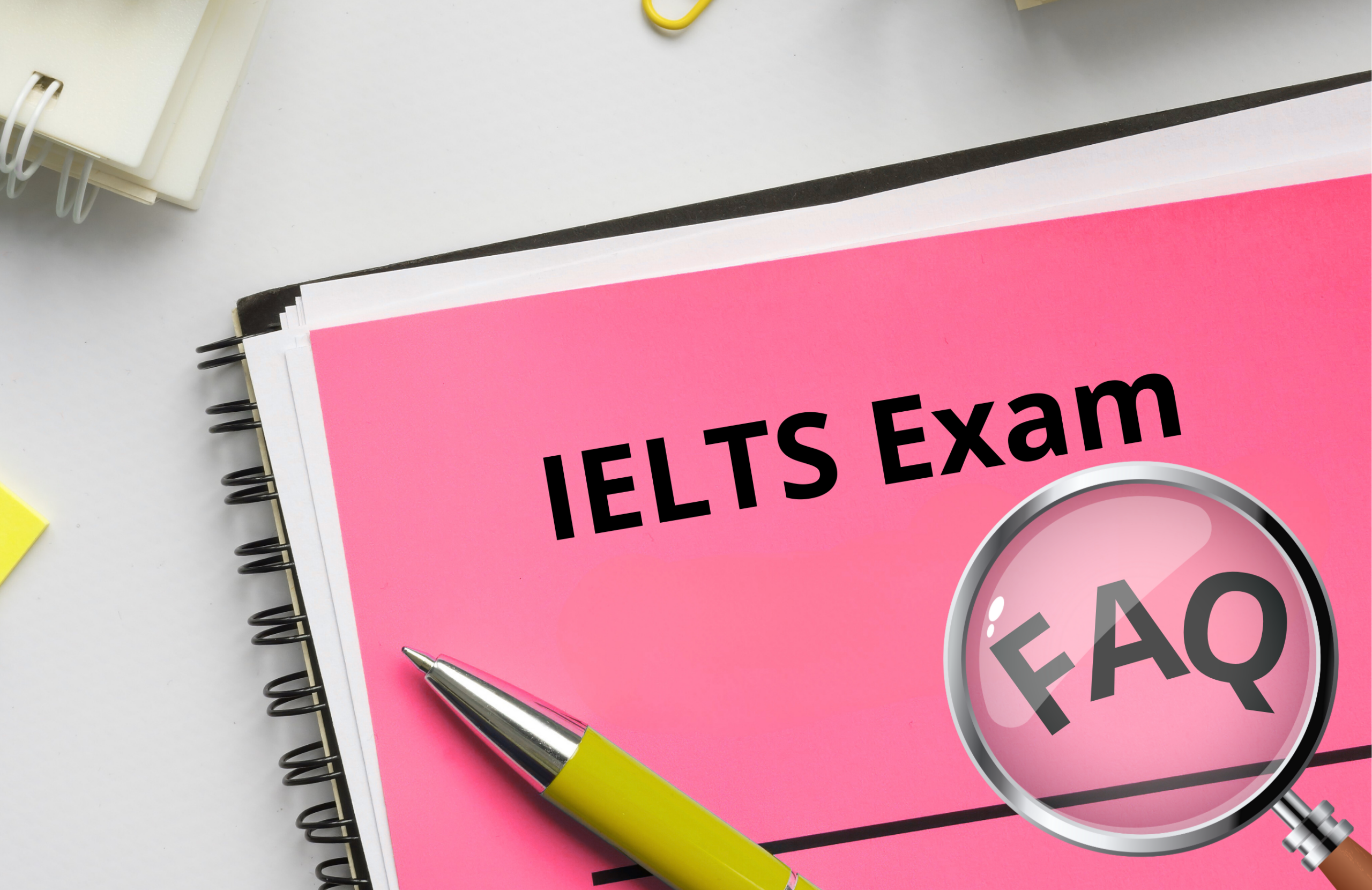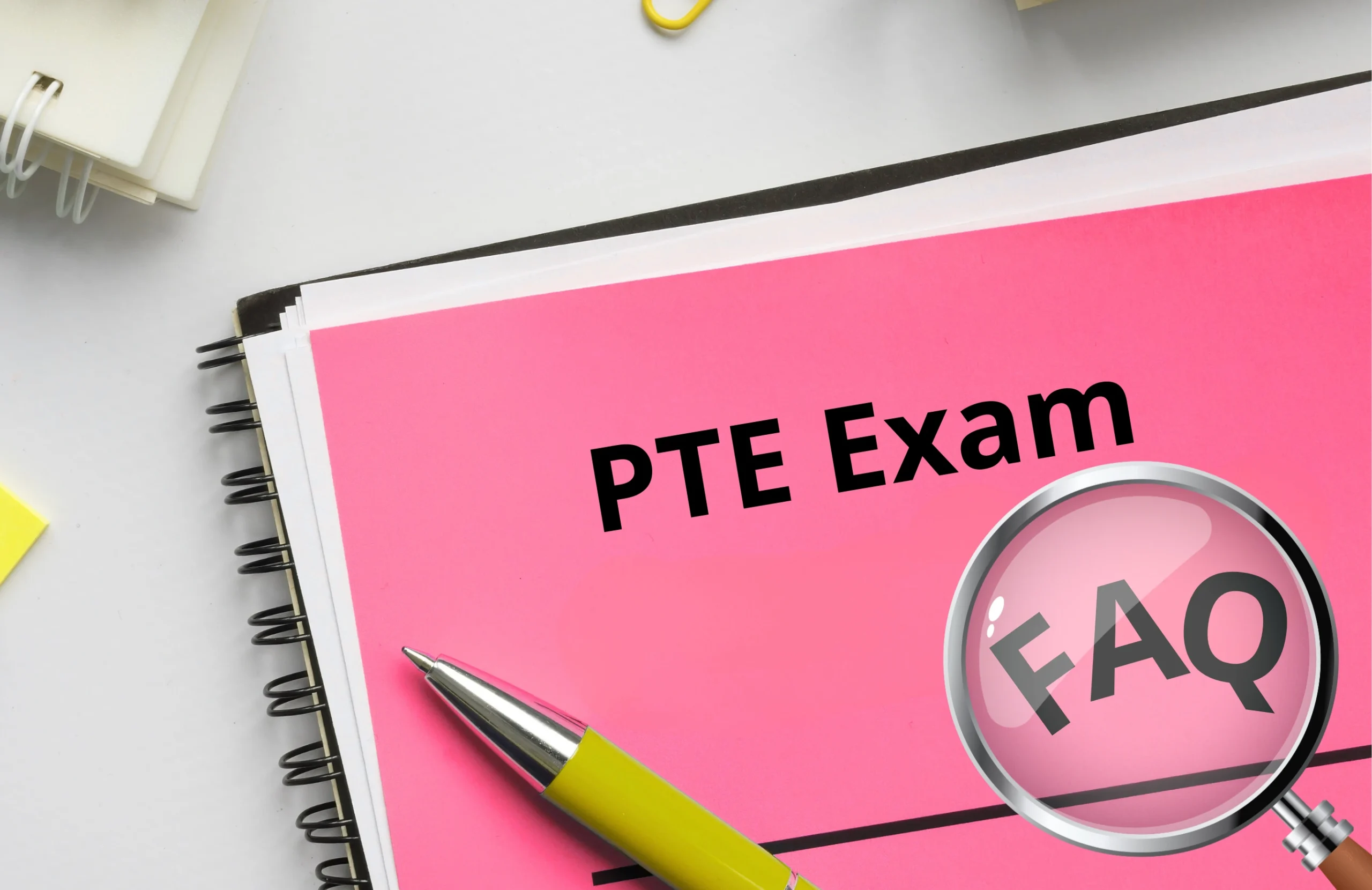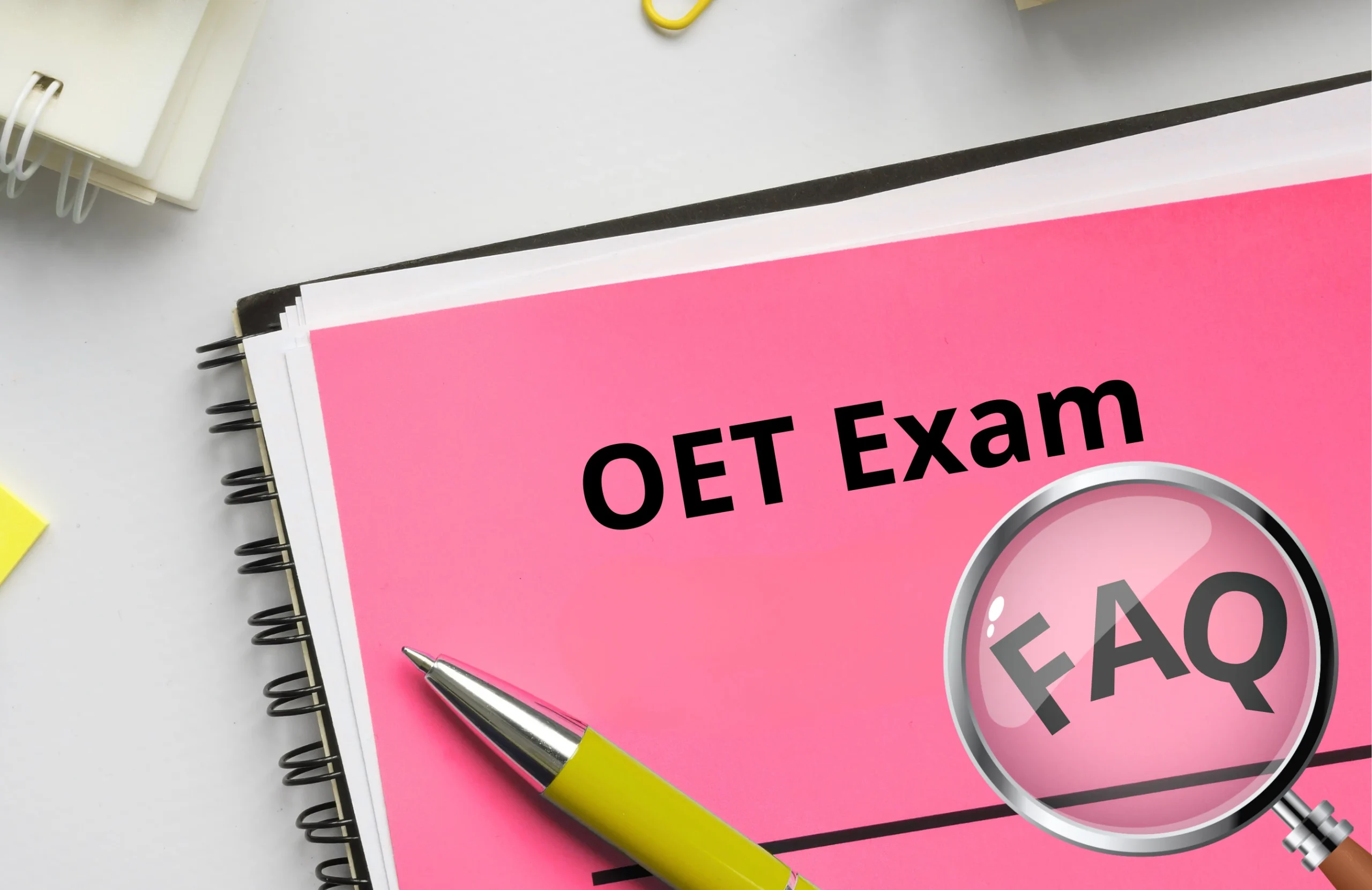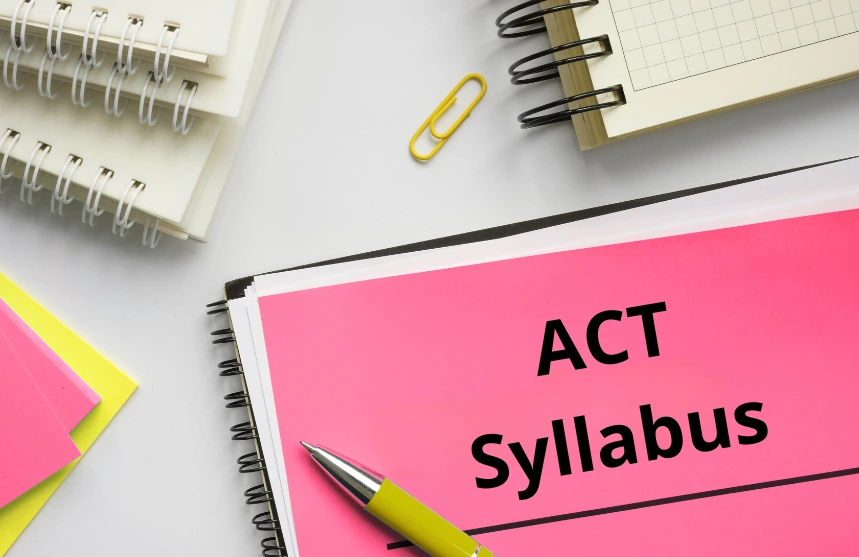Hotel Management Scope Overseas: Courses, Skills, Internships & Global Careers Explained
Scholarships to Study in France: Secure Funding for Your Global Future

If you’re serious about studying abroad, France offers one of the best returns on investment. From world-class academic institutions and affordable living costs to industry-aligned degrees and Schengen-wide job opportunities – France ticks all the right boxes. But here’s the best part: you don’t have to break the bank to study here. Scholarships to Study in France are not only plenty but also tailored to support a range of backgrounds, disciplines, and aspirations.
Whether you’re from a science stream, liberal arts, or commerce, whether you’re aiming for a Bachelor’s, Master’s, or PhD – there’s a funding opportunity waiting for you. The trick lies in knowing what to apply for, how, and when. That’s exactly what we’ll break down today – point by point, with clarity and confidence.
Why Consider Scholarships to Study in France?
Before diving into specifics, it’s important to understand why French scholarships are worth your attention:
- France ranks high in international education affordability. Scholarships make it even better.
- French government, private institutions, and EU bodies actively fund international students.
- Most scholarships cover not just tuition but also living costs, insurance, and even travel.
- Receiving a scholarship strengthens your CV and increases post-study opportunities.
Types of Scholarships Available to Study in France
There are three broad categories of scholarships that international students can apply for:
1. Government-Funded Scholarships
Offered by the French Ministry for Europe and Foreign Affairs or agencies like Campus France, these are typically the most competitive but also the most rewarding.
- Fully or partially funded tuition fees
- Monthly stipend
- Health insurance coverage
- Access to student housing or accommodation subsidy
Example: Some cover up to 1,181 EUR per month for living costs and 700 EUR for airfare.
(Actual numbers vary. Refer to the disclaimer below.)
2. Institutional & Organisation-Based Scholarships
These include funding offered by foundations, research bodies, or sector-specific organisations in France and the EU.
- Often merit-based or research-focused
- Can include fee waivers, accommodation, or project-specific funding
- Some target women in STEM, minorities, or specific nationalities
3. Regional Scholarships
Various French regions (such as Île-de-France or Rhône-Alpes) fund students to promote diversity and attract talent in local industries.
- Monthly stipends
- Transport allowance
- Cultural immersion programmes
- Often overlooked – less competition!
Scholarship Application Process: Step-by-Step
Most students miss out on scholarships because they start late or don’t apply correctly. Follow this simplified roadmap to improve your chances.
Step 1: Identify Your Course and Programme
Before applying for any scholarship, you must shortlist your desired programme. Each scholarship is tied to either a specific course type (Bachelor’s/Master’s/PhD) or field of study (STEM, Humanities, Business, etc.).
Step 2: Shortlist Scholarships Based on Eligibility
Filter scholarships based on:
- Nationality
- Academic qualification
- Field of interest
- Language proficiency (French or English)
- Financial need or merit
Step 3: Prepare a Strong Application
Commonly required documents:
- Statement of Purpose (SOP)
- Academic transcripts
- Letters of Recommendation (LoRs)
- CV / Résumé
- Proof of language proficiency (DELF, DALF, TOEFL, IELTS)
- Portfolio (if applicable)
Tip: SOPs and LoRs carry significant weight in French scholarship evaluations.
Step 4: Submit Applications Online
Use the official portals (e.g., Campus France, embassy websites, or scholarship-specific pages). Keep a tracker of deadlines – many close 6–9 months before the intake.
Step 5: Attend Interviews or Follow-Ups
If shortlisted, you may need to attend an interview or submit additional documents. Be ready with:
- Academic justifications
- Future goals
- Financial plans
Step 6: Accept Offer and Apply for Visa
Once awarded, accept the scholarship formally, collect the award letter and use it while applying for your student visa to France.
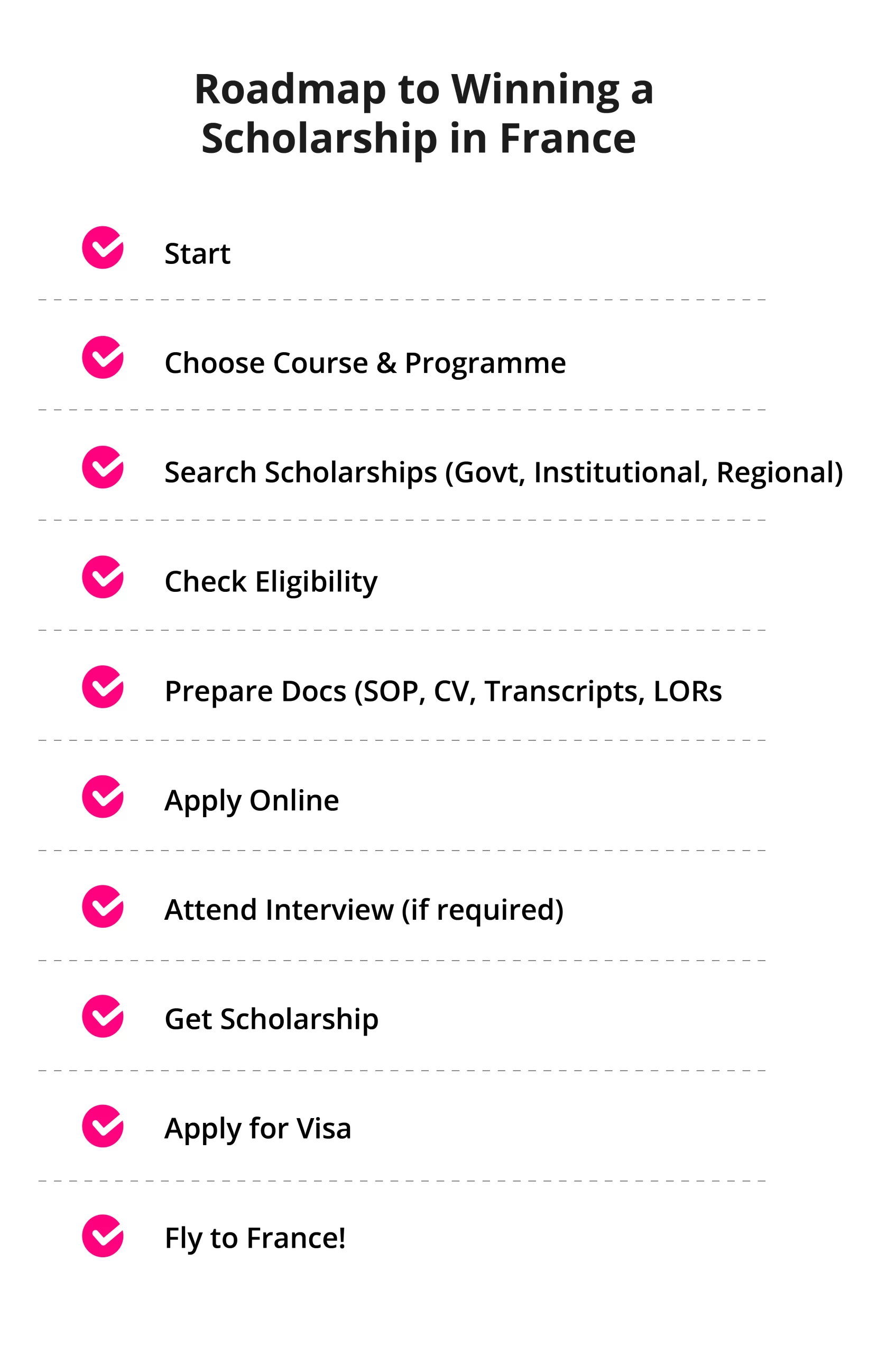
What Do French Scholarships Usually Cover?
| Feature | Government | Institutional | Regional |
|---|---|---|---|
| Tuition Fee Waiver | YES | YES | YES |
| Living Expense | YES | YES | YES |
| Travel Allowance | YES | NO | YES |
| Health Insurance | YES | NO | YES |
| Accommodation Support | YES | YES | YES |
| Research/Project Grants | NO | YES | NO |
Who Should Apply?
French scholarships are open to a wide range of applicants, especially those who bring unique perspectives or merit to the table. These include first-generation learners, students from low-income backgrounds, academic high performers, women pursuing Careers in STEM fields, and creatives in arts, design, or architecture. Aspiring researchers are also highly encouraged to apply. The more specific and well-defined your profile is, the higher your chances of finding a scholarship that aligns with your goals and strengths.
Tips to Improve Scholarship Selection Chances
Securing a scholarship to study in France is competitive, but a strategic approach can significantly improve your odds. From early preparation to presenting a standout application, here are some key tips to help you maximise your chances:
- Start at least 12 months before your intake
- Apply to 4–5 relevant scholarships
- Customise SOPs and essays (avoid generic content)
- Maintain 70%+ academic score
- Learn basic French (adds bonus points)
- Get documents professionally proofread
- Track deadlines and set reminders
How Scholarships in France Boost Career Outcomes
Studying in France with a scholarship isn’t just a cost-saving strategy – it’s a long-term investment. Here’s why:
- Strengthens your CV – Scholarship recipients are viewed as high-achieving and determined candidates by recruiters.
- Allows better academic performance – Financial ease helps you focus more on your studies and networking.
- Boosts global mobility – Post-study work opportunities across the EU and the Schengen area.
- Builds long-lasting networks – Scholarships often come with alumni or mentorship access.
Let MetaApply IE Help You Win That Scholarship
At MetaApply IE, we don’t just help you apply – we help you win. Our expert counsellors support you through every step of your study abroad journey, from shortlisting the right scholarships and crafting compelling SOPs and CVs to preparing for interviews and securing financial aid, accommodation, and visa approval. We also offer dedicated TestPrep and Career Counselling, ensuring you’re guided at every stage. Whether you’re pursuing an MBA in Paris, a culinary course in Lyon, or a Master’s in Artificial Intelligence in Grenoble, our team makes sure your dream is funded, focused, and future ready.
Read more: Top Universities in France
Frequently Asked Questions
International students can get scholarships to study in France by applying to government-funded, regional, or institutional programmes based on merit, financial need, or academic background. Start by shortlisting your course, preparing essential documents like SOPs and academic transcripts, and applying through official portals like Campus France. Early preparation increases your chances significantly.
Fully funded scholarships for Indian students in France typically include tuition waivers, monthly living stipends, health insurance, and travel allowance. While specific names vary, options are available through French government initiatives, bilateral programmes, and subject-specific grants. Most are accessible via Campus France or French embassy portals.
The ideal time to apply for scholarships to study in France is 9–12 months before your intended intake. For September admissions, begin your application process between October and December of the previous year to meet most major deadlines.






